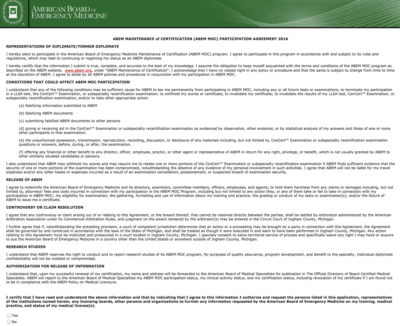EMS/ED frequent fliers are both a bane and (supposedly) another cost of doing business for EMS systems. Maybe not.
My city of Fort Worth is trying to do something about it, proactively and correctly (emphasis mine):
MedStar program sends paramedic to homes of some repeat callers before they dial 911 | Fort Wor…
FORT WORTH — Last year, MedStar was called more than 800 times by 21 people.Those “frequent fliers” weren’t necessarily facing life-threatening emergencies. Some may have needed primary care but didn’t have a regular doctor or transportation.
The overuse of ambulance services can divert crews needed elsewhere and drive up costs for taxpayers. Calls from those 21 MedStar patients resulted in $962,429 in ambulance charges, as well as charges for emergency room care. Most of that will never be collected, a MedStar official said, because only 1 in 4 patients transported has insurance….
MedStar is trying to tackle the problem with a new program that sends a paramedic to the homes of some patients before they dial 911.
“We wanted to try and find a better way to keep some of these folks more healthy,” said Matt Zavadsky, MedStar operations director. “We wanted to keep from making transports that we could prevent, and we thought this was a group of patients that we could manage proactively rather than reactively.”
Out of those 21 people, MedStar picked nine to participate in the program.
Read the article, as it’s been a qualified success; while it would be optimal to include all the frequent fliers, reality intervenes. As a practicing doc I haven’t missed anyone, but that’s a good thing. I hope there’s enough money to continue this program, and to slowly expand it.
Good for MedStar.




A few years ago a Cleveland TV station wondered why there was no ambulance service available in a reasonable time frame. What they found was, due to liability, the ambulance service transported everyone for any reason. So, if you had a welfare card, it was cheaper to call the squad that call a taxi. A lot of people got a free ride for a head cold or just because they were bored and wanted attention.
Anything to cut cost and free up this valuable asset is a plus.
Steve Lucas
Interesting, back when I was working on the ambulance I actually made a very similar suggestion for one of our frequent flyers and was reprimanded for it! I think its a great idea (obviously) and I think we’ll be seeing this as a growing trend in EMS in the future depending on how the healthcare system shapes out in the next few years!
I have heard of other EMS systems using this model with very good results. I think JEMS had a write up about it a few years back. I think it takes a different kind of paramedic who really cares to get involved in this but they really seem to enjoy the work because they get some continuity in a job where there isn’t a lot.
Also- I’ve seen articles on mini-interventions with frequent fliers where a doctor, social worker, EMS people, etc. sat down and, without mentioning the costs of their frequent flier status, laid out to the person how much they are abusing the system. They then offered social services, routine non-emergency evaluations by the paramedics, and an internal medicine doctor who would take them on as a patient. In one case, a woman who was transported 200+ times in a year dropped to 2 transports the next year. What it took was a frank discussion with the patient and a little extra social support and that’s really all they needed to shed their frequent flier status.
I remember hearing about this study a while back. Seems like it was a good idea. I wouldn’t be surprised to see similar results if it were tried elsewhere. I think it would also be useful to put in some sort of “Social Work Only” lane in the Emergency Department, since it seems that a good quarter of the patients I see fit that category.
This is uncharted territory and should be handled with the utmost care. Is an EMT qualified to be a social worker? Why should a free citizen be “visited” by an EMT 3 times a week? Is there confidentiality when Med Star is getting involved in the private lives and homes of patients? Who is accountable if the EMT misses a life threatening symptom(even if mental, suicidal)and the patient does not seek care from a qualified MD because they have been told they are “frequent flyers” and their problems are not considered medically substantial and a waste of time and money? Some medical problems have very similar symptoms and can be misunderstood by the patient resulting in an even more confused patient or on the other hand, death because the patient now believes every time these symptoms come they are not in danger. I see the need to help these patients if helping is really the purpose, but it is clearly not the case according to the article. God forbid someone unqualified makes a bad judgment call. If this is an example of what National Health Care is, no thanks big brother, I’d rather see my doc!